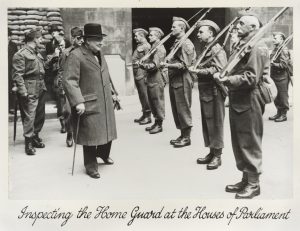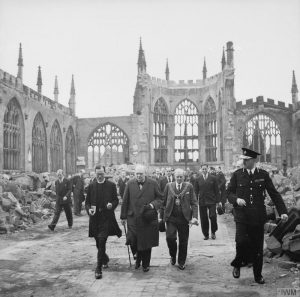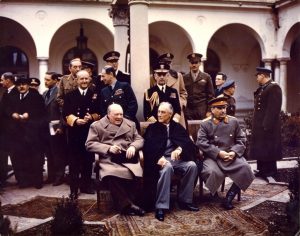
StoryElement
Mers-el-Kebir

Winston Churchill, Parliament Square, London © Sue Lowry & Magellan PR
January 1, 1970
In June 1940, Churchill made two more trips to France to try to persuade the French to fight on. But Hitler continued his advance into Paris and France surrendered on 17 June 1940; Italy had joined forces with Germany and Hitler now had control of much of continental Europe.
When the French fleet at Mers-el-Kebir near Oran refused to surrender to the Royal Navy (they’d been asked to scuttle their ships or sail them to the West Indies or the United States where they could be put beyond use), Churchill ordered it to be destroyed – to prevent it falling into the hands of the Germans. On 4 July, in one of the most concentrated big-gun naval barrages in history, over a thousand Frenchmen were killed. This shockingly brutal act sent two clear messages to the world. Britain was determined to continue the war and Churchill had the necessary ruthlessness to do whatever was necessary to ensure it could fight on – and have a chance of winning it.
Subscribe
WANT MORE?
Get the Churchill Bulletin delivered to your inbox once a month.





